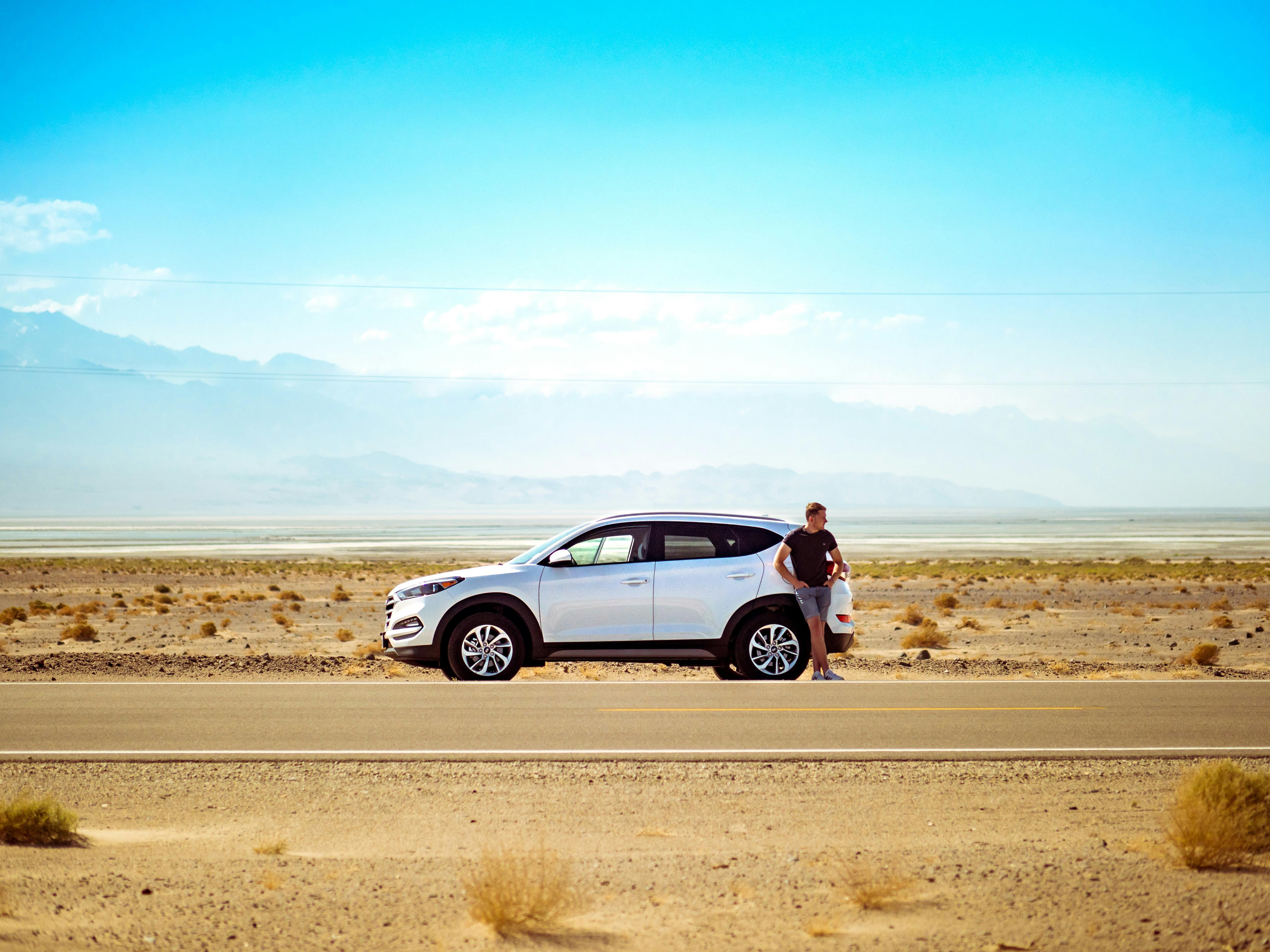So you’re planning on getting a car? Great decision! 👍
Now, let’s get serious.
Deciding to get a car is the easy part, the challenge now lies in paying for it. Because cars can be expensive, your choices often come down to leasing or buying, and for most people, this is a tough call. For some, the decision to buy or lease boils down to what's in the bank. For others, it's a matter of control and ownership.
Let's explore both options to help you make the right decision for your goals and financial situation.
Three main factors to consider
You shouldn’t decide to buy or lease a car without first considering certain factors. Let's look at the top three.

1. How much you can afford
The amount you're willing to spend on a down payment and how much you can pay monthly are two factors that determine the type of car you can drive off the lot.
Leasing a car typically requires little to nothing as a down payment. The point of a car lease is to pay off the car’s depreciation over time and return it to the dealership after the lease term ends. You never own the car outright.
It is like renting an apartment. You don’t own it, but you pay a monthly cost to live there. And once your rental lease expires, you return the keys to the landlord. 🔑
Comparatively, an outright purchase may require a higher down payment, depending on the type of car you want.
If you already have a budget and are unsure which move to make, this lease vs. buy calculator may help you estimate your monthly payments. Knowing how much interest you'll be paying, your monthly cost, and your potential down payment will help you figure out the best options for your budget.
2. What you’re planning to use it for
Did you know that leased vehicles have mileage limits attached to them? Oftentimes, dealerships or leasing companies restrict the number of miles you’re allowed to drive your new vehicle.
On the other hand, when you buy a car, you're free to drive it as much as you want with no one breathing down your neck! The only mileage consideration you might have is regarding future resale value; the more mileage a car has, the less money it will probably sell for.
Do you want a car solely for your daily commute to work? Or do you need one for family trips and traveling? With a leased car, you can enjoy all the benefits of having a car for a fraction of the price. However, your control of the car is limited because you have to return it on a set date.
But, when you purchase a car, it's yours, and you have total control to do with it as you, please.
3. Your desired lifestyle
Be honest with yourself, why do you want a car? 🤔
Do you usually prefer to have ownership over your possessions, which also means full responsibility for maintenance, repair, etc.? Or do you prefer to avoid these responsibilities and leave the ownership to someone else? Neither is wrong—it just depends on the lifestyle you prefer.

What you should know about leasing a vehicle
Leasing a vehicle means you are renting it for a specific period, anywhere from 24 to 48 months or more. The good news is, leasing gives you more flexibility on the type of car you can “afford” since it requires a smaller down payment than purchasing outright.
💡 Quick Example: If you have $10,000 to get a car, you can afford to lease a vehicle worth way more than that amount. Rather than buy a Honda or Kia for that amount, you can lease a car as luxurious as a Mercedes Benz for the same price—but only for a limited time.
So before you get too excited about your new Benz, don’t run to the lot just yet…let’s consider lease terms and conditions first.
Typical Terms and Conditions when leasing a car
There are set terms and conditions within a car lease contract you should know. Let's go over the biggest ones to watch out for:
- Lease Term: This is how long the lease agreement is in effect. It will include the amount of time you are allowed to use your new car, and any special perks you may negotiate before driving off the lot.
- Capitalized Cost: This is the agreed-upon cost of the car negotiated with the dealership. It is also called the ‘lease price’ and is often lower than the manufacturer’s suggested retail price (MSRP). Don’t be afraid to negotiate this aggressively as it will affect how much you pay monthly. You can threaten to go to another dealership if you have to. Always try to get the best deal.
- Taxes and Fees: Often, taxes and fees for routine maintenance and oil changes of a leased car are included in the capitalized cost and in your monthly payments. However, fees imposed because of excessive wear and tear—which could be anything from a paint scratch to dents or stained interiors—may catch you off-guard. So, before signing a car lease contract, make sure you know the potential taxes or fees that could be added.
- Repayment Term: Your repayment plan shows how much you are expected to pay your lease originator monthly. This amount can range from $200 to $1500, depending on how much the car's value reduces while you own it. This is why you should negotiate a low capitalized cost as it will reduce your monthly cost throughout your repayment period.
- Mileage Restrictions: Most leased vehicles have a 10,000 to 15,000-mile allotment per year. If you exceed this limit, you will have to pay for the additional miles on a per-usage basis. Excess mileage charges usually range from 10 to 25 cents for each mile and are higher for more expensive cars, due to a greater decline in value.
- Residual Value: This is the value of the leased vehicle after the lease term has elapsed. It is the car's value after its depreciation has been factored in. The residual value is the price that the manufacturer or lessee will retain in the car at the end of the lease term.
Smart tip: You can negotiate your lease terms to cover the excess miles you expect to use. Doing this might increase your monthly payment, but you won’t have to pay for extra mileage when the lease ends.

Pros and cons of leasing a car
Like every financial decision, there are pros and cons to leasing a car. Let’s go over them.
Pros
- Potentially lower monthly payments.
- Access to more expensive options.
- Warranty protection by the manufacturer that covers repairs and maintenance.
- No resale or trade-in value worries.
- Significant tax advantages in deductions for business owners.
- A new car every few years (if you're a serial lessee 😉).
Cons
- Mileage restrictions and penalties if limits are exceeded.
- No ownership unless you purchase the vehicle at the end of your lease.
- Lack of control over the vehicle as you are merely renting the car. So, no customizations, sorry!
- A leased vehicle must be in pristine condition after the term elapses, otherwise a fine could be imposed for repairs.
- Hidden expenses include an early termination fee if you end the contract early.
- Potentially more expensive in the long run.
- Car insurance may be more expensive.
- Getting a better deal tends to require a higher credit score.
Disclaimer: Leasing a car in 2022 is more expensive than in previous years because there are fewer cars to be leased. (Natural supply & demand.) With this information and a lease calculator, you can calculate how much in monthly lease payments you would need to make for a car at any price.
What you should know about buying a car
If you purchase something, it's yours until it isn't. Similarly, buying a car makes you its owner until you decide to sell it or lose it somehow. 😅
First, how much money you have is the biggest factor in determining what you can buy. It also determines if you should get a new or used car.
Now, before you make that final decision on a new Mercedes, here's what you should know about buying a car.
![]()
Vehicle Financing: auto loans, credit cards, and personal loans
Because the average American only has about $4500 in savings, most need a car loan to afford the full price of a vehicle. This probably explains why an Experian debt study stated Americans have over $1.43 trillion in auto loan debt as of 2021. 🙃
Financing can come in the form of an auto loan, a credit card, or a personal loan. Most people go the bank route, but regardless of your lender, a solid credit score is usually a prerequisite for the approval of a car loan. The higher your credit score, the better your chance of acquiring a car loan at competitive rates and vice versa. You can find out what your credit score is with Credit Karma.
Of course, if you can secure a great deal on financing then buying a car might overtake leasing as the hot option. Borrowing from someone you know can make purchasing more achievable for you, particularly if you have bad credit. A platform like Pigeon enables smooth lending between friends and family members with automatic reminders, payment tracking, and legal documents to take the awkwardness out of mixing money and relationships. If you're set on buying your vehicle and have people in your life willing to help, Pigeon could be the way to make it happen.

Typical Terms and Conditions when buying a car
The fine print is never fun to read, especially when you want to drive your new car ASAP. But it’s crucial to understand these terms before you sign, so let’s get it over with. 🤓
- Loan Term: The car loan you get can be short-term or long-term. The loan term is the time frame during which your auto loan payments are made. It could last anywhere from a few months to as many as eight years.
- Invoice Price: This is the initial amount the manufacturer charges the dealer for the car. The final charge is usually lower as dealers receive discounts, incentive awards, and rebates on deals.
- Base Price: This is the cost of the car without added options like leather upholstery, alloy wheels, air conditioning, etc.
- Down Payment: This is a percentage of the car's price paid up-front to the dealer. Some lenders don't require upfront costs on an auto loan but putting a down payment on your car typically reduces your monthly payments.
- MSRP: This is the manufacturer's suggested retail price. It is the summation of the base price, manufacturer's transportation charge, and other manufacturer-installed options.
- Maintenance fees: There's usually a warranty period for new cars where the manufacturer covers the cost of extensive repairs. However, once your warranty is over, maintaining your car becomes your responsibility. Maintenance fees could range from a few dollars to get an oil change to thousands of dollars to fix a dent. So, drive carefully! 🙂
- Resale Value: This is the value of the car after depreciation. It's the car's selling price if the owner decides to sell, and it's always less than the cost price.

Pros and cons of buying a car
Are you leaning towards buying a car? Look at these pros and cons first!
Pros
- Build equity within an asset.
- No mileage limitations. Road trip to Texas? No problem!
- Total ownership of the car and the ability to customize it to your heart's content.
- No hidden charges in the form of wear and tear penalties.
- The ability to sell or trade-in for your next car whenever you want.
- Potential for tax deductions.
- It's usually cheaper in the long run.
- Car insurance tends to be cheaper.
Cons
- Usually requires a larger down payment.
- There's a higher purchase price for luxury cars.
- Higher monthly cost in loan repayments.
- Long-term maintenance costs.
- Rapid depreciation as new cars lose about 15% to 25% of their market value in the first five years of ownership.
Summary

Leasing or buying a car is a big decision!
Leasing a car is probably the way to go if you want a car for a short period, want access to more luxurious vehicle options, or you’re trying to avoid buying and selling complications. However, this option often has hidden fees and higher credit thresholds as a prerequisite.
On the other hand, purchasing a car is usually better if you want more freedom, avoid restrictions or hidden costs, and build equity in assets you own.
No matter the option you choose, you still end up driving off into the sunset! Literally.

Want to read more related content? Check out some more of our awesome educational pieces below:



